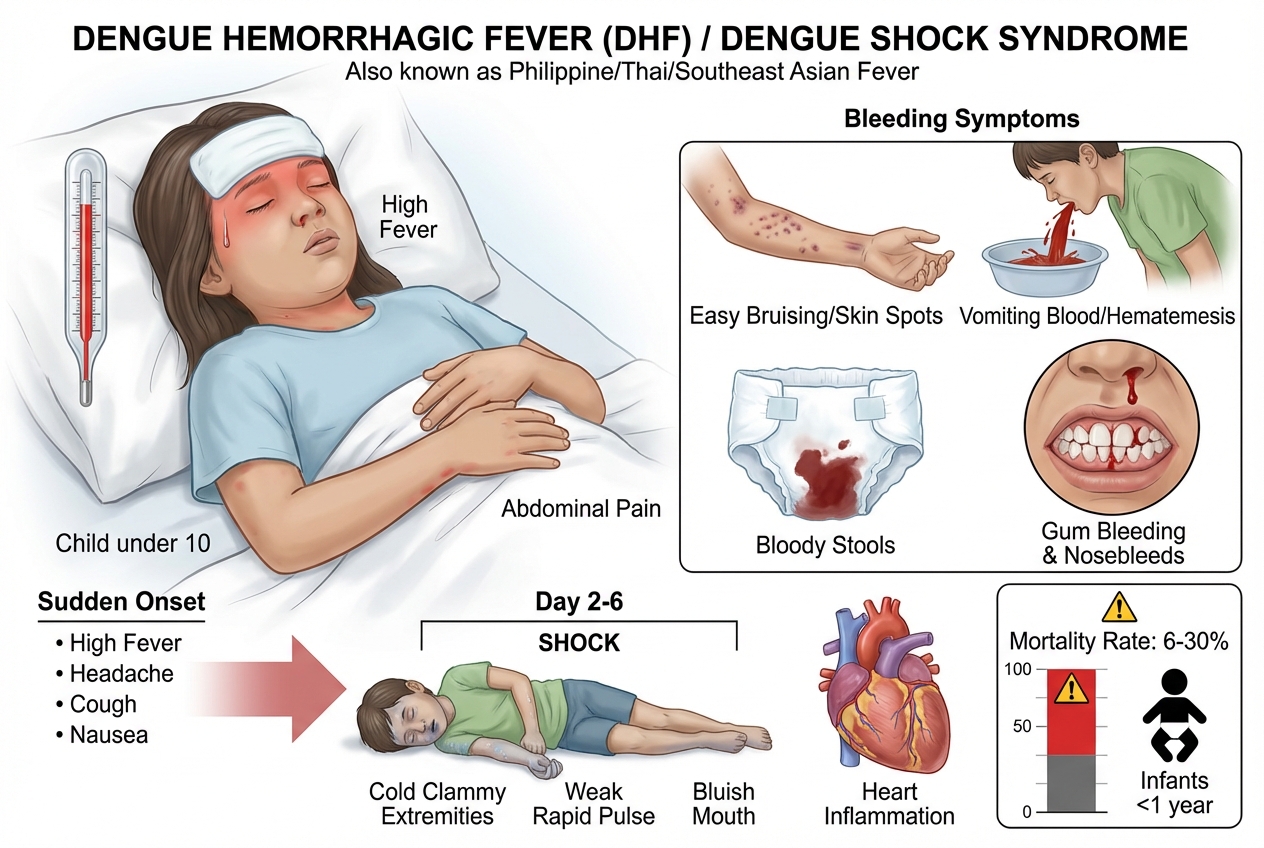
Dengue shock syndrome is a condition caused by the dengue virus, predominantly impacting children under the age of 10. It is characterized by symptoms such as abdominal pain, bleeding, and sudden collapse. Also referred to as Philippine or Southeast Asian fever, the syndrome begins suddenly with a high, persistent fever, headache, and respiratory and digestive symptoms like cough, nausea, vomiting, and abdominal pain. Shock may develop within 2 to 6 days, marked by a rapid collapse, cold and clammy limbs, a weak pulse, and bluish discoloration around the mouth. Bleeding is common, resulting in easy bruising, skin hemorrhages, spitting up blood (hematemesis), blood in the stool, bleeding gums, and nosebleeds. Additionally, heart inflammation may occur. The mortality rate is significant, ranging from 6 to 30%, with most fatalities occurring in children, particularly those under one year old.




